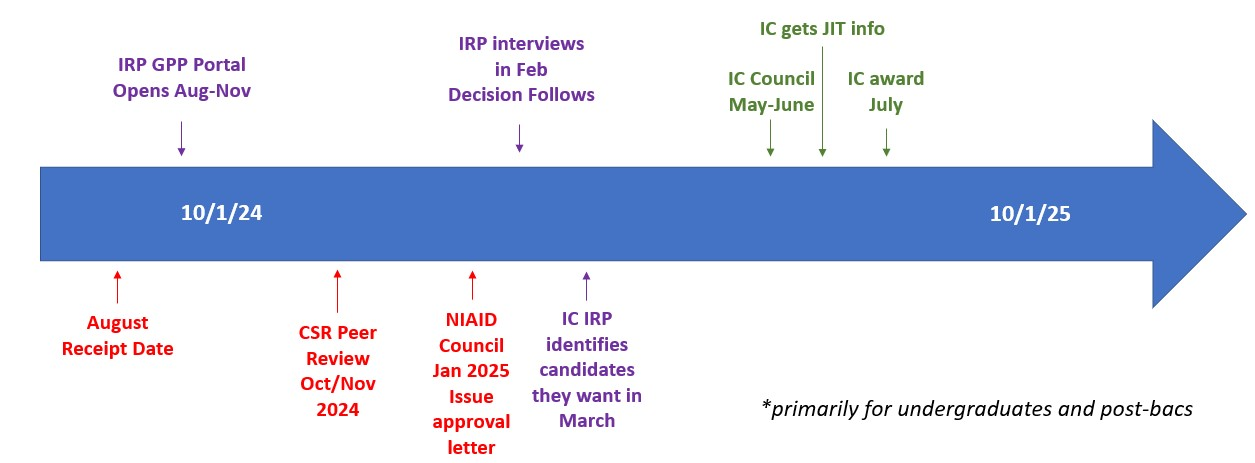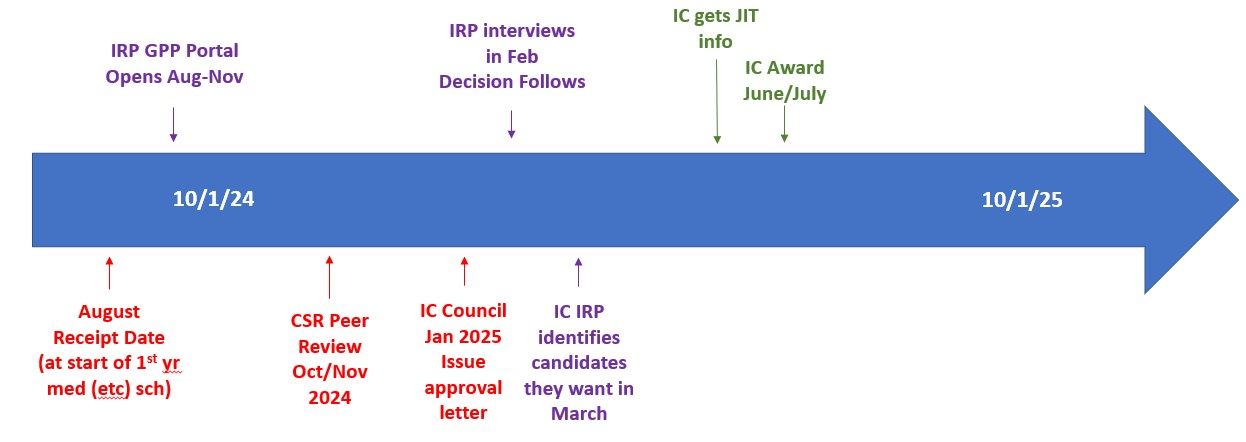NIH published the notice of funding opportunity (NOFO) PAR-23-109, NIH Medical Scientist Partnership Program (FM1 Clinical Trial Not Allowed) on March 10, 2023.
Refer to the NIH Medical Scientist Partnership Program (MSPP) Application Guide.
Updated April 2, 2024. We updated the answers to several questions, added a few new questions, and updated the NIH Medical Scientist Partnership Program (MSPP) Application Guide.
NIH has established several formal partnerships with universities, domestic and international, that allow students to perform dissertation research within the NIH Intramural Research Program (IRP). Matriculants are considered both full-time students at the home university and NIH pre-doctoral trainees from the beginning of graduate school. Students fulfill their academic requirements at the university while performing part or all of their dissertation research in a research group within the NIH IRP.
Prospective students wishing to enroll must meet the eligibility requirements of the NIH-University Institutional Partnership and complete all required applications by the specified deadlines. There are two application forms for students wishing for admission through the Graduate Partnerships Program (GPP) Institutional Partnerships: GPP Application Required for Full Admission Consideration and GPP Application Required After the Applicant is Selected for Matriculation. Prospective students should contact the GPP with any questions or concerns.
There are three required steps. The student needs to apply to a clinical degree school. Concurrently, the student needs to apply to the NIH Intramural Research Program’s Graduate Partnership Program (GPP) via the NIH GPP application portal. The student also must submit an NIH FM1 fellowship grant via Grants.gov. Students will also need to create an NIH eRA Commons account to apply for the NIH FM1 fellowship grant.
- Interested candidates who are currently applying to U.S. clinical degree schools should submit an application for Track 1 of the NIH M.D./Ph.D. Program. To apply for Track 1, start the NIH GPP Application, then under Partnership Selection, select University of Oxford (England)/University of Cambridge (England)/Consortia of Universities - NIH – M.D./Ph.D. - Track-1.
- Interested candidates who are currently enrolled in U.S. clinical degree schools should submit an application for Track 2 of the NIH M.D./Ph.D. Program. To apply for Track 2, start the NIH GPP Application, then under Partnership Selection, select University of Oxford (England)/University of Cambridge (England)/Consortia of Universities - NIH – M.D./Ph.D. - Track-2.
There will be a single annual application deadline in August with awards to be made in July of the following year. College seniors and graduates with a Bachelor’s or Master’s degree can apply in August, and if an FM1 grant is funded, they will receive an award prior to the start of their first year of clinical degree training. Applicants already accepted to a clinical degree school can apply at the beginning of their first year in time to receive an award at the start of their second year of clinical degree training.
Refer to the following Track 1 and Track 2 timelines:
Track 1 Timeline

Track 1 Timeline
Track 2 Timeline

Track 2 Timeline
Applicants can enter the MSPP through two paths – called Track 1 and Track 2. Track 1 is for undergraduate students and graduates who have completed their Bachelor’s or Master's degree(s) and are applying concurrently to clinical degree schools and the NIH Intramural Research Program (IRP). Upon acceptance, usually Track 1 students begin their training by completing the first 2 (preclinical) years of clinical degree education at the desired clinical degree school that is administering the FM1 grant.
They will then take a leave of absence from the home clinical degree school to pursue Ph.D. training through the NIH IRP GPP. Upon completion of the Ph.D. degree requirements, the student returns to the home institution to complete the clinical degree and resume MSPP funding.
Track 1 will therefore provide these MSPP Scholars with 4 years of support during their clinical degree education. In contrast, Track 2 is for students who have already been accepted to a clinical degree school and are applying to (or already accepted to) the NIH IRP GPP. These candidates will apply to the MSPP at the start of the first year of clinical degree training. Support for Track 2 students will include the second, third, and fourth years of clinical degree training as well as during the Ph.D. portion of their training.
The clinical degree training will be conducted at a U.S. clinical degree school that the student attends with the clinical degree conferred by that school. The Ph.D. research portion of the combined degree program will be conducted in intramural (i.e., on-campus) laboratories at NIH with the Ph.D. or D.Phil. degree conferred by the student’s affiliated graduate degree department, universities in the U.K., or another NIH institutional partnership program as described below.
An affiliated graduate department can be the graduate (Ph.D. degree conferring) department that is associated with an existing combined-degree program at the student’s clinical degree school. If the student’s clinical degree school does not have a formal combined-degree program, the student should contact a graduate department associated with the clinical degree school (based on their science area of interest) to determine if that department will accept the student into its degree-granting program on the condition that they are also accepted to the clinical degree school and the GPP. This would be considered as an Individual Partnership.
Funding consideration is for applicants who have applied to the GPP and 1) accepted the offer of admission or 2) turned down the offer of admission in lieu of an Individual Partnership.
If the student is accepted into a graduate department, a clinical degree school, and the GPP, but does not receive an FM1 grant, they can still opt to pursue both degrees without NIH support for the clinical degree training. The NIH IRP will still support that student financially during their dissertation research phase.
If a student cannot identify an affiliated graduate department, they also have the option of applying for the NIH Institutional Partnership Program, and if accepted, their Ph.D. or D.Phil. degree will be conferred by one of the NIH Affiliated Universities. Note that this program is restricted to specific participating universities, specific NIH Institutes, and specific research areas.
Check Section VII of the NOFO for NIH scientific/research, peer review, and financial/grants management contacts. You may also contact NIHMSPPQuestions@niaid.nih.gov.

